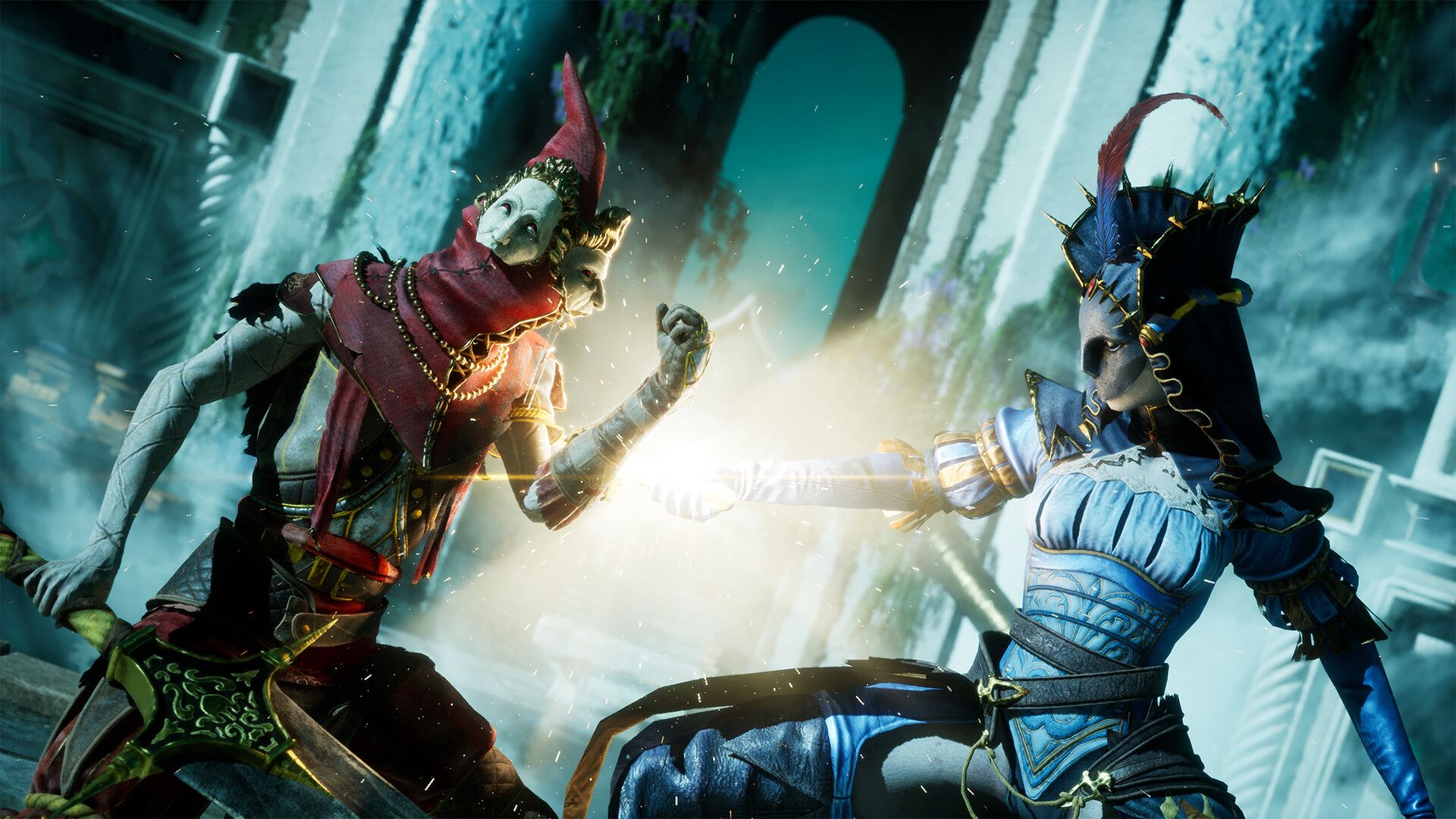
Enotria: The Last Song is having quite the moment. Having very publicly bumped its release date back by several months in order to dodge Elden Ring: Shadow of the Erdtree, it's now quietly gathering some decent buzz. That's thanks in no small part to an eight-hour demo that's proving popular on Steam, but in an hour-long demo at Summer Game Fest 2024, I found that it's also due to a smart, accessible, versatile soulslike that's continuing the genre's push into new types of narrative.
During the demo, I took on three bosses in a row, jumping directly to their arenas; a shadowy ritual hall; a shattered church with the faces scratched out of the figures in its frescoes; a neo-classical arena surrounded by a dizzying moat of wine. That meant that I had less opportunity to explore Enotria than I would have liked, but it also gave me a close look at how its world pulls from the cultural history and folklore of developer Jyamma Games' native Italy.
Enotria spends little time dwelling directly on its narrative, preferring, like many soulslikes, to allow the world to tell the story for it. Here that's built on the Commedia dell'arte, a form of theatre popularized in Italy around the 16th century, and best known for its masked character archetypes. The exaggerated visages of those characters are resurrected in Enotria, allowing you to claim the masks of defeated foes to rebuild your playstyle around them. Slightly more subtle but just as present, however, is religion - my first fight takes place in a church, the faces of saints and angels scratched away from its hand-painted frescoes. In another fight, my fallen foe appeals to a statue of a Madonna, crying out to not be forsaken. Catholicism is only one part of this world built primarily around folklore and theatre, but Enotria's religious undertones are some of the most interesting aspects of its narrative so far.
In my time-limited, Boss Rush-style demo, I was fast-forwarded through an astoundingly detailed build system. I barely got a look at Enotria's sprawling skill-tree, but was impressed by a streamlined levelling system that allows you to focus on broader types of improvements rather than a more granular, one-by-one approach. A spell system exists alongside your martial abilities, allowing you to take advantage of a handful of powerful bonuses if you can do enough damage to charge them up. The mask system takes things even further, allowing you to build something akin to loadouts to swap between as you take on a new face.
That means that Enotria isn't limited to a specific FromSoft similarity. One of the bosses I faced hit fast, encouraging a parry-based approach, which thanks to 'Unraveling' - Enotria's answer to Sekiro's balance system - would eventually allow me to stagger him and go in for a massive attack. Another, however, was more fragile, encouraging a more intimate, Bloodborne style approach as I dodged-rolled around inside his attacks. The gluttonous final boss I faced, however, punished being that close with massive AoE attacks, but couldn't out-damage a lifestealing loadout and the blows from my powerful greatsword.
Enotria sells itself on its sun-soaked Italian vistas, an attempt to lighten up the traditional soulslike setting with an aesthetic that would scour the darkness from Blighttown itself. But even in my brief time interacting with its world, I found a more fascinating world in its blend of theatre and religion. Couple that with a classic soulslike feel that still manages to push the envelope through its vastly-changeable systems, and this is quickly proving to be a game that deserves all the buzz it's getting. Having hopefully done enough to step out of the Erdtree's shadow, its September release date could make it the perfect follow-up for those finished with FromSoft's next release.







